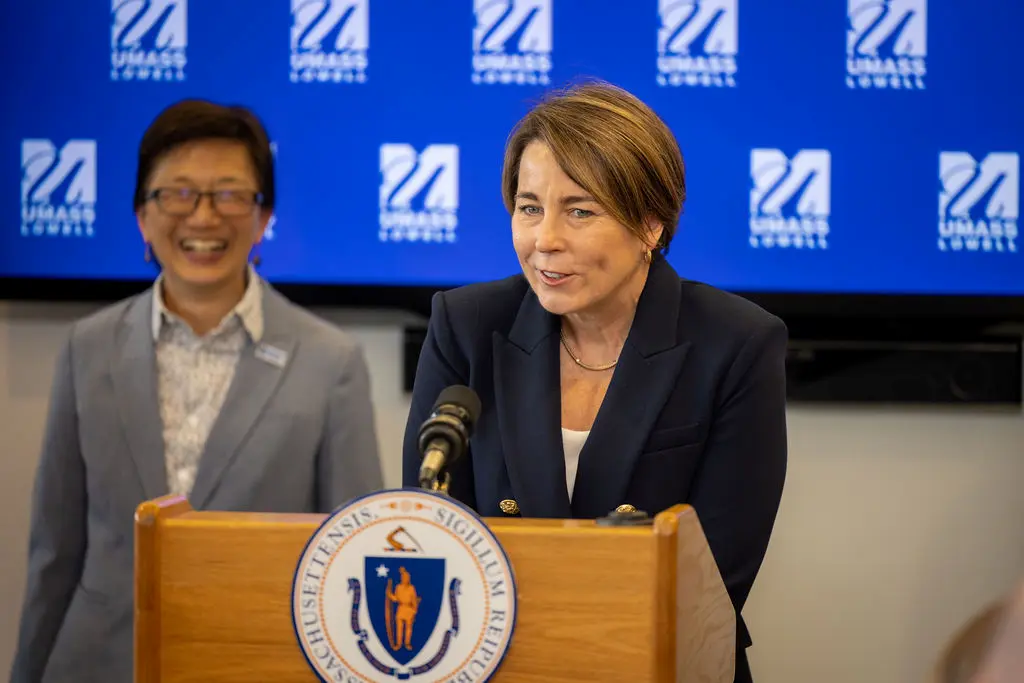Boston Globe

Gov. Maura Healey announced March 28 that Draper is planning to add jobs in Lowell as part of a new partnership with UMass Lowell. University Chancellor Julie Chen, left, spoke about the Lowell Innovation Network Corridor and economic development plans between the city of Lowell and the campus.
Draper, the not-for-profit government contractor based in Cambridge, is negotiating a lease for a new building on UMass Lowell’s East Campus, near the Tsongas Center, as it looks for more space to accommodate its growing microelectronics division.
The Draper expansion was announced on Thursday by Governor Maura Healey at an event in Lowell to highlight the university’s broader development vision for that part of its campus: a 1.2-million-square-foot plan dubbed the Lowell Innovation Network Corridor. Robert Durkin, Draper’s principal director of administration, said UMass Lowell and its partners would build the shell of the Draper building, while Draper would manage the interior construction. A spokeswoman for Healey said the administration is committed to making a “sizeable contribution,” expected to be in the tens of millions of dollars, to the project.
Draper would set up shop this spring in temporary space at UMass Lowell’s Wannalancit Mills building, relocating about 50 people there from Cambridge in the coming weeks. The goal, Durkin said, is to build a new building in which Draper is the sole tenant, where the contractor would focus on microelectronics work, which is an expanding part of its government contracting business. The project would eventually bring hundreds of jobs to the city. Draper officials said they like Lowell because it offers an easier commute for many employees than Cambridge, and they would be able to recruit talented UMass Lowell students.
UMass Lowell is working with the city, the UMass system’s building authority, and developers GMH Communities and Wexford Science & Technology to build out the LINC development. A groundbreaking on two research buildings is expected in 2025, with occupancy planned for 2027. UMass Lowell officials say the development should bring 2,000 new permanent jobs to the city over the next decade, including many high-tech roles, along with the potential for up to $6 million in new property taxes for the city and nearly 500 housing units.
